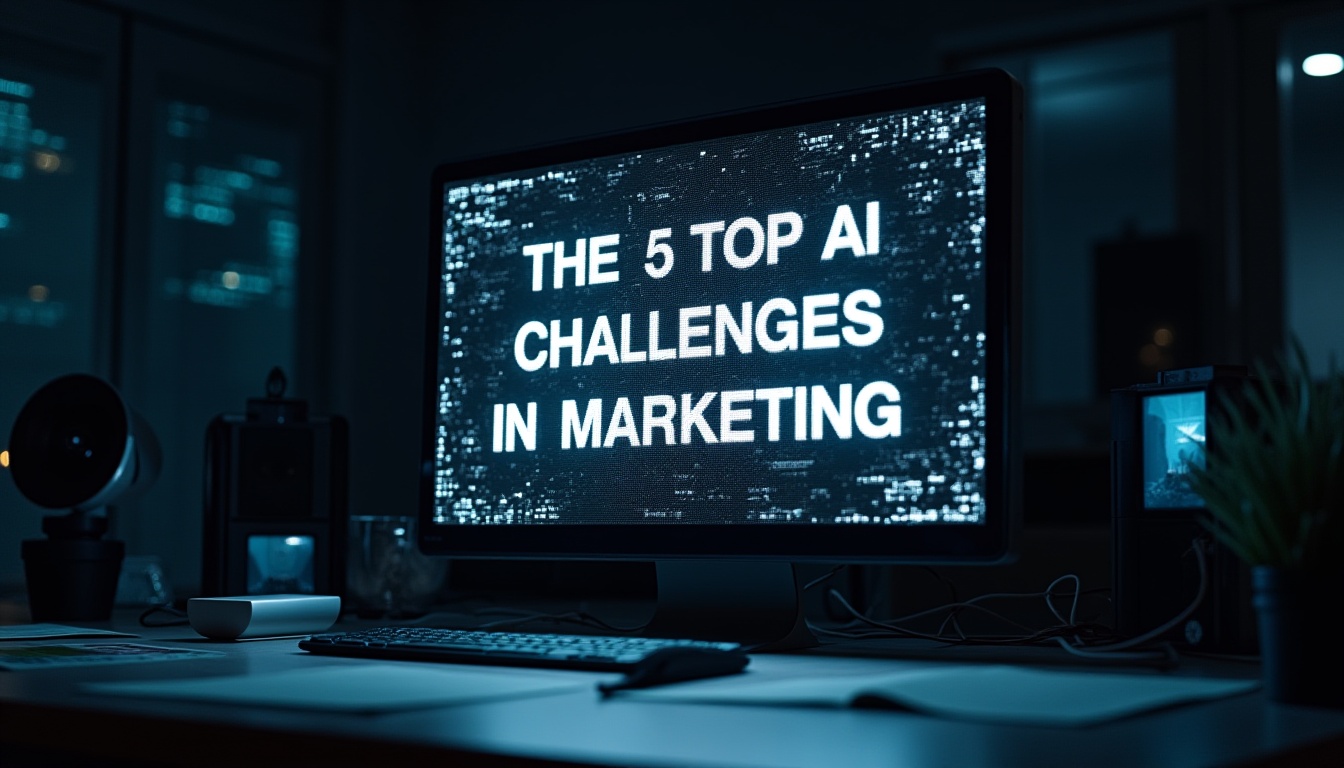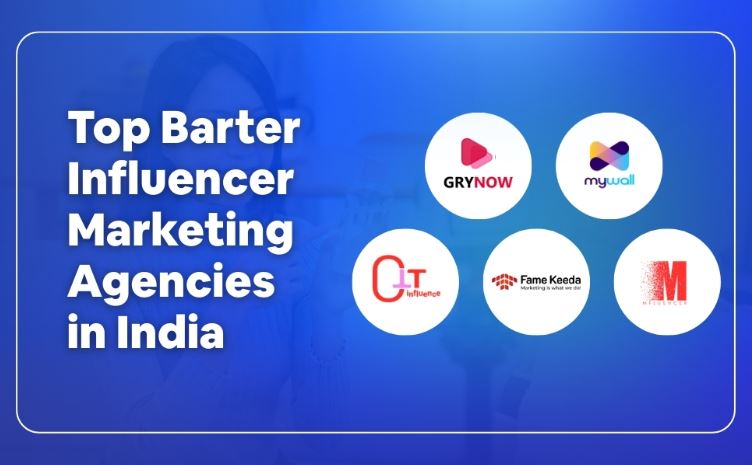The 5 Top AI Challenges in Marketing and How to Solve Them
AI is reshaping the marketing landscape. It automates tasks, personalizes experiences, and offers data-driven insights. Yet, it brings challenges. Integrating AI with existing systems is a major hurdle. Many marketers struggle with this. Data privacy and security concerns add to the complexity. The lack of skilled personnel to manage AI tools is another issue. This gap can hinder effective AI implementation. High costs also pose a barrier, especially for smaller businesses.AI algorithms can produce biased results. This affects strategies and customer trust. Understanding customer behaviour through AI requires quality data, which is hard to obtain. Despite these challenges, AI offers immense potential. With the right strategies, marketers can overcome these obstacles. Let's explore the top AI challenges in marketing and how to solve them.
Why AI is Transforming Marketing—And Why Challenges Matter
AI is transforming marketing by enhancing efficiency and effectiveness. It automates repetitive tasks, freeing up marketers to focus on strategy. With AI, customer experiences are more personalized. This leads to improved engagement and loyalty. Data-driven insights guide smarter decisions. However, these benefits come with hurdles. Integrating AI into existing marketing systems is complex. It requires substantial effort and resources.
Here are some challenges AI presents in marketing:
- Compatibility issues with current technology
- Data privacy and security concerns
- Scarcity of skilled AI professionals
Marketers must address these challenges to harness AI’s full potential. Understanding and overcoming hurdles leads to more successful AI adoption.
Challenge 1: Integrating AI with Existing Marketing Technology
Integrating AI with current marketing technology is a key challenge. Many businesses use diverse tech systems. AI must fit seamlessly into these systems for optimal performance. Discrepancies between old and new tech can create friction. This leads to inefficiencies and potentially costly errors. Ensuring compatibility is crucial. Moreover, integration often requires technical expertise. Many marketing teams lack in-house resources for smooth transitions. Legacy systems present significant hurdles. They can be outdated, lacking the necessary compatibility with modern AI tools. To tackle this, marketers should prioritize systems that easily pair with AI. Look for solutions specifically designed for integration.
The following obstacles may occur:
- Compatibility issues with legacy systems
- Complex integration processes
- Resource allocation for integration projects
Planning and strategy play vital roles in integration. Without a clear plan, AI projects may falter. Investing in the right tools can ease integration woes. Marketers must consider scalability to future-proof their systems.
Solutions: Building a Seamless MarTech Stack
Creating a cohesive MarTech stack is essential. Start by assessing current systems and identifying integration-ready technologies. Adopt flexible and scalable AI solutions. They allow for easy adaptation and growth over time. This minimizes disruptions. Collaboration with IT departments is crucial. They provide technical insights and facilitate seamless integrations.
Consider the following solutions:
- Evaluate current technologies for compatibility
- Choose flexible, scalable AI tools
- Collaborate with IT for integration insights
Engage AI consultants if needed. They can guide the integration process and recommend best-fit solutions. This accelerates deployment timelines. Successful integration requires careful planning and collaboration. With the right approach, marketers can build a powerful MarTech stack.
by Logan Voss (https://unsplash.com/@loganvoss)
Challenge 2: Data Privacy, Security, and Compliance
Data privacy is a primary concern in AI marketing. Consumer data is sensitive, and breaches can damage trust. Marketers must prioritize secure data handling. Security measures need constant updates. As hackers become more sophisticated, so must security protocols. Companies must guard against potential threats at all times. Compliance with data regulations is another hurdle. Laws such as GDPR and CCPA enforce strict guidelines. Non-compliance can result in hefty penalties. Understanding these regulations is vital. Teams must ensure their AI tools adhere to all legal requirements. Missteps can lead to legal repercussions and damaged reputations. Moreover, data misuse can affect customer trust. Consumers are wary of how their data is used. Transparency is key in fostering trust. Marketers face the challenge of balancing personalization with privacy. While AI can enhance personalization, it must not infringe on privacy rights.
Key privacy concerns include:
- Data breaches and unauthorized access
- Compliance with international regulations
- Maintaining transparency in data usage
Navigating this landscape requires diligence and vigilance. Marketers must stay informed and proactive about privacy trends and threats
Solutions: Ensuring Trust and Compliance in AI Marketing
To maintain trust, prioritize data security. Use encryption and firewalls to protect against breaches. Regularly update security software to counter new threats. Ensure compliance by staying informed of legal changes. Assign a dedicated team to oversee compliance efforts. This minimizes the risk of falling behind regulatory requirements. Regular audits help identify potential vulnerabilities. These assessments keep security measures sharp and effective. Implement changes swiftly when gaps are found.
Consider these strategies:
- Implement robust security measures like encryption
- Establish a compliance oversight team
- Conduct regular security audits
Transparency is essential for consumer confidence. Clearly communicate data usage policies to customers. This openness builds trust and reinforces brand integrity. Engage with privacy experts to fortify your approach. They provide insights into the latest legal and security trends. This ensures your marketing practices are up-to-date and reliable.
Challenge 3: Lack of Skilled Talent and Training Gaps
AI is a fast-evolving field, demanding specific expertise. However, there is a significant talent shortage in AI marketing. Companies struggle to find professionals with the needed skills. The rapid pace of AI advancements leaves marketers unprepared. Many lack the technical knowledge to integrate AI effectively. This gap limits the full potential of AI in marketing strategies. Marketing teams often need more training in AI tools. Without this, they can misuse these sophisticated systems. Misinterpretation of AI insights can lead to poor decision-making. Hiring experienced AI professionals can be expensive. Small businesses, in particular, feel the financial strain. They may end up underutilizing their AI investments. Skill gaps limit innovation in AI marketing. Marketing departments must adapt quickly to stay competitive. Bridging these gaps is crucial for future success. Team members sometimes fear AI technology. They worry about job displacement and complex systems. This fear can hinder the adoption of AI solutions. Therefore, businesses must rethink their talent strategies. Investing in training and skill development is vital. Consider the following common issues:
- Shortage of AI-trained professionals
- High cost of hiring skilled talent
- Unpreparedness due to rapid AI evolution
Filling these gaps enhances a marketing team's capabilities. It also fuels innovation and drives results.
Solutions: Upskilling Teams and Fostering AI Readiness
Upskilling is essential to bridging talent gaps. Companies should invest in regular AI training for their teams. This builds confidence and competence in using AI tools. Partnering with educational institutions can also help. These partnerships can foster tailored training programs. Such collaborations can create a pipeline of skilled professionals. Workshops and seminars can be effective. They provide hands-on experience with AI technologies. This practical knowledge is invaluable for marketing teams.
Consider implementing the following:
- Regular AI training programs
- Partnerships with educational institutions
- Hands-on workshops and seminars
Engaging employees in AI discussions boosts morale. Addressing concerns about AI can reduce resistance. This openness fosters a more AI-ready workforce. Mentorship programs can further enhance skills. They offer one-on-one guidance on AI applications. This personal touch helps deepen understanding and expertise.
Challenge 4: AI Bias, Quality, and Ethical Concerns
AI systems often reflect human biases. This can lead to skewed marketing strategies. Such biases can alienate customer groups. Ensuring quality data is vital for AI accuracy. Poor data can degrade AI outcomes. This affects the reliability of marketing insights. Ethical concerns also arise with AI usage. Strategies must align with ethical standards. Marketers face challenges maintaining this balance. Consumers are increasingly aware of AI ethics. This awareness can impact brand reputation. Transparent AI practices are crucial for trust. Bias in AI can lead to unfair targeting. It may favor certain demographics over others. This can result in social backlash.
Consider these challenges in AI:
- Potential biases in algorithms
- Importance of data quality and ethics
- Impact on brand trust and reputation
Addressing these concerns is necessary. Marketers need fair and ethical AI models. They must actively mitigate AI biases.
Solutions: Building Fair, Transparent, and High-Quality AI
Transparency in AI processes is essential. Clear AI policies build customer trust. Marketers should be open about their AI use. Using diverse data sets can reduce bias. Ensuring varied data inputs prevents skewed results. This diversity leads to fairer marketing outcomes. Regular audits of AI systems can help detect bias. These audits ensure AI integrity and fairness. They are crucial for maintaining ethical standards.
Consider these steps to enhance AI quality:
- Implementing transparent AI policies
- Ensuring diverse data sets for analysis
- Conducting regular audits and reviews
Collaborating with AI ethics experts can be beneficial. They provide valuable insights into ethical practices. This collaboration supports fair AI solutions. Ultimately, prioritizing ethical AI drives trust. It strengthens customer relationships and brand loyalty. Fair AI practices are advantageous for all.
Challenge 5: High Costs and Scalability Barriers
AI implementation often involves significant costs. These can be prohibitive for smaller businesses. High initial expenses deter widespread adoption. Ongoing expenses also pose challenges. AI systems require regular updates. Maintenance costs can strain marketing budgets. Scalability is another issue in AI marketing. As businesses grow, AI solutions must expand. This scalability isn't always straightforward. Some AI systems lack flexibility. They can't easily adjust to changing needs. This limits their effectiveness over time.
Consider these marketing technology challenges:
- High initial and ongoing costs
- Difficulty with scaling systems
- Limited flexibility in AI solutions
Effective AI needs adaptable systems. Businesses must forecast growth. They should choose solutions that evolve with their needs.
Solutions: Making AI Accessible and Scalable for All Marketers
Cost-effective strategies can democratize AI use. Smaller businesses can explore scalable AI platforms. These offer tiered pricing based on needs. Open-source AI tools can reduce expenses. They provide flexibility without high costs. Businesses can tailor these tools to fit.
Consider these approaches:
- Opting for scalable, tiered AI solutions
- Exploring open-source AI platforms
- Partnering with vendors for tailored solutions
Collaboration with tech vendors can be beneficial. They offer expertise in creating scalable systems. Marketers should seek solutions that grow with them. Increasing accessibility fosters innovation. It encourages more businesses to experiment. Scalable AI solutions benefit marketers of all sizes.
The Future: AI Challenges for Digital Marketing in the Years Ahead
The digital marketing landscape is rapidly evolving. AI promises great potential but also brings fresh hurdles. Future challenges need forward-thinking solutions. Consumer expectations are shifting swiftly. Personalized experiences are in high demand. AI tools must keep pace with these changes. Regulatory frameworks are also tightening. Data privacy laws are becoming stricter. Compliance with these laws is increasingly complicated.
Consider these future challenges for digital marketers:
- Adapting to evolving consumer expectations
- Navigating stringent data privacy laws
- Keeping up with rapid AI advancements
AI development continues at a brisk pace. Marketers must stay informed. Continuous learning is vital for seizing AI opportunities. The future holds both promise and complexity. Proactive strategies will help marketers leverage AI effectively. Innovation and adaptability will be key.
Conclusion: Turning AI Challenges into Marketing Opportunities
AI challenges in marketing are significant. However, they also offer avenues for growth and innovation. Addressing these challenges can lead to competitive advantages. By solving issues proactively, marketers can harness AI benefits. Consider these key steps:
- Invest in AI training
- Ensure data compliance
- Foster cross-department collaboration
Embracing AI with a strategic mindset transforms hurdles into opportunities.


.jpg)




